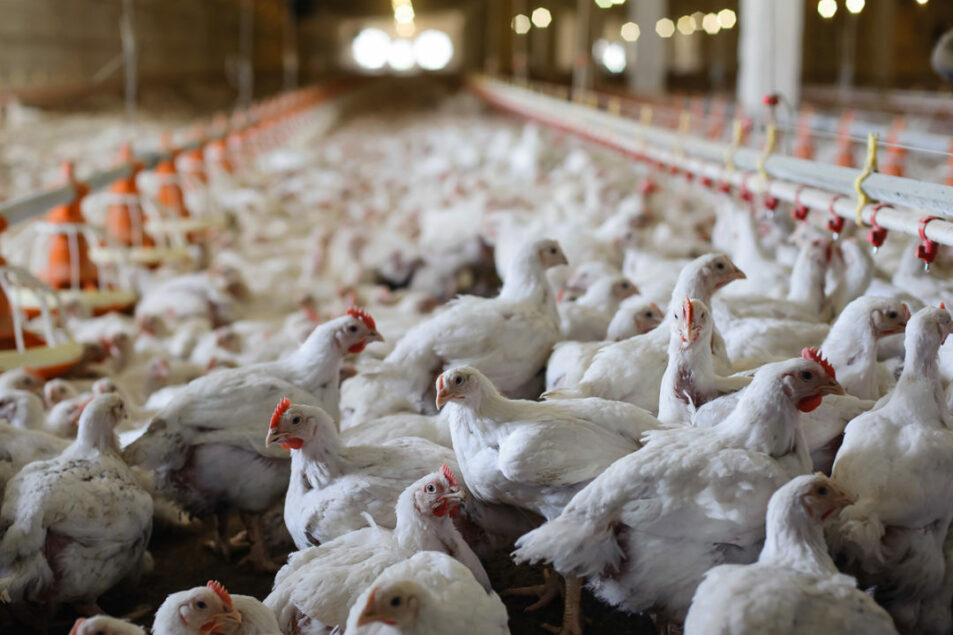In a shocking case of animal neglect, over 350,000 chickens have been euthanized in South Africa after a state-owned poultry company failed to provide adequate feed, leaving the birds to starve and resort to cannibalism. The crisis unfolded at multiple poultry farms operated by Daybreak Foods, a major supplier under the management of South Africa’s Public Investment Corporation (PIC), which was unable to finance necessary feed supplies.
The National Council of Societies for the Prevention of Cruelty to Animals (NSPCA) was alerted to the situation on April 30, initially responding to reports of distress at one of the affected farms. Upon investigation, NSPCA officers discovered that at least five other farms across northern South Africa were also facing severe neglect, with numerous poultry sites found in appalling conditions.
The NSPCA was forced to euthanize more than 350,000 chickens after the birds were found starving, many showing signs of cannibalism due to lack of food. In a statement, the NSPCA described the scene as “harrowing,” revealing that skeletal chickens huddled together in dark corners while others fed on their weaker counterparts. Feeding lines were found completely stripped, and the overall state of the birds left little hope of their survival.
Despite the grim circumstances, over 500,000 chickens were rescued and relocated by the NSPCA. However, the full scale of the death toll remains unclear, as many birds had already perished prior to the welfare organization’s intervention.
The crisis has raised serious questions about the management and oversight of South Africa’s state-owned enterprises, particularly those in the agricultural sector. NSPCA officials have condemned the lack of accountability in this case, calling for urgent reform to ensure the humane treatment of animals. Legal action is reportedly being considered as investigations into the cause of the financial collapse at Daybreak Foods continue.
This incident has also ignited a wider debate on animal welfare practices in South Africa and across the continent, as many agricultural operations struggle with financial instability and lack of regulation in the sector.



